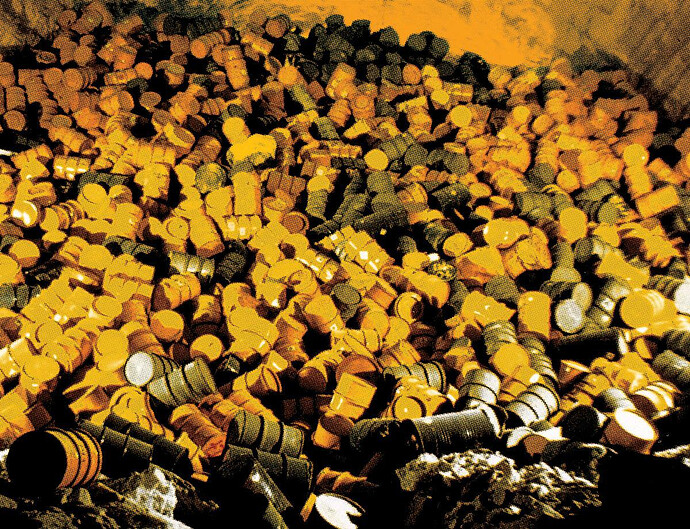I am sure the folks at UN FCCC would like to know your maths for making a coal to gas transition look bad (unless the pipes leak live a sieve). More here.
Oh, you can certainly come up with a number of creative excuses and FUD to convince people not to build nuclear - and then claim that “it’s too late to build nuclear”
Thank you, great way to keep a discussion civil. /s
The problem for your argument is that even a cursory search would turn up an slew of articles that support my points, and add many more. I’ll just take this one (EDIT: Here’s the best case I could find so far based on a Sweden/France extrapolation concluding 25-34 years) that comes up high in a search for “How fast can nuclear power scale”. It doesn’t even get to the “fast” point because the premise falls apart even before that (granted they make some assumption you maybe would not, such as "conventional design, uranium fed, etc.). Btw this is based a team of credentialed academics publishing in the (peer reviewed) IEEE. Not some US talk radio BS.
But I do you a favor and also now look at what the main pro-article is: How Nuclear Power Can Stop Global Warming | Scientific American from 2013 - that looks promising, doesn’t it? Sadly the writer is just a journalist, and the article is not peer reviewed or similar, but SA has a decent reputation.
I’ll just dump a few points into a block point here:
a) A big problem is cost. The construction of large nuclear power plants requires a lot of money to ensure safety and reliability. […]
b) It’s a shame that the U.S. essentially stopped R&D on advanced nuclear power a few decades ago […] ARPA–E itself, however, has no program to develop alternative reactors because of the expense of proving out novel designs and the long timescales required to develop any of them. […]
c) But significant hurdles remain, not least the decades required for design, licensing and construction of even existing nuclear technologies, let alone novel ideas. That may mean advanced nuclear power cannot contribute much to efforts to combat climate change in the near term, which leaves current reactor technology as the only short-term nuclear option—and one that is infrequently employed at the global scale at present. [which would mean that the constraints in the article I cited previously would be very relevant] […]
d) Over the full lifetime of a nuclear power plant, that means greenhouse gas emissions of roughly 12 grams of CO2-equivalent per kilowatt-hour of electricity produced, the same as wind turbines [IPCC says 16 for nukes vs 12 for wind and approx 1000 for coal].
Thorium reactors are nice (if they really work) and you’re not going to have an easy time catching me bashing nuclear research. But here is “your side” side shooting down your argument. Even current designs need 6-12 years to be built. How are you ever going to scale this up in time? And even if you were, we’d be stuck with really expensive 20-40 year old technology that we’d all have to decommission at similar times (there may be benefits of scale there, but also immense risks).
Correct, “not stunning” is precisely what we want (source).
Please note that the point you are making is not referencing the right part of my argument. My point was NOT that I was concerned with loss of human life (in such a metric anyway).
What I meant is if you scale up nuclear to replace coal and fill in for the other renewables, statistically (to date, there have been 11 nuclear accidents at the level of a full or partial core-melt) you end up with approximately one of these for every 2 months. I have argued it would be considerably worse if you take the socio-technicnologic competency in many less developed places into account. Your counter argument for this was to name the country that had the technological resources and developed a nuclear expertise to challenge the USA after WW2 and is ranked as very high human development index. What kind of argument is that?
Pick a dozen from this list or belwo, and have a few on there that will get hit hard by climate change. For example Bangladesh would sure like to have some nukes.
This may come as a surprise
Are you sure you’re talking to the right person here? Do you want to continue to do so, then I’d get on with addressing a few points that I made and ease up on the snark.
Nuclear waste storage in one picture:
That picture is indeed neat, and something I haven’t got on my radar yet, thanks.
A couple of points though:
a) 20 MWh per capita per annum is already 30% too low today, by the time we hit 10 bn people it is likely to be even worse - so the number is a tad arbitrary.
b) Missing sources.
c) Not everything is highly concentrated waste. How is e.g. decommissioning going to look?
e) This is not nuclear waste storage in one picture, it is an illustration of a volume of a certain type of nuclear waste - and Helen.
f) Here is a picture of actual nuclear waste storage in the oh-so-responsible country of Germany, with an oh-so-responsible nuclear industry. Strictly speaking this was a (publicly funded) feasibility study into storage, so the financial pressure and corner cutting was less than you’d have to expect when cost per MWh and raw construction speed was the driving factor:
I rest my case, but I am looking forward to see you address my previous points, before you get to these. Disclosure: I’ve also sat in on some nuclear related activities at MIT, apart from a previous materials science degree.
One hint regarding storage: Don’t forget to mention subduction zones next time.
